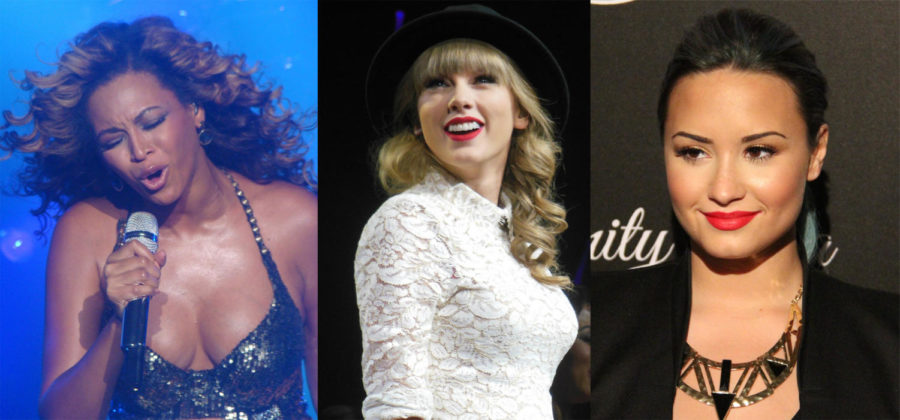Beiwel: Celebrities shouldn’t be only feminist role models
Beyonce, Taylor Swift, Demi Lovato.
March 20, 2016
Feminism means many different things to many different people. To some, it is the equality of the sexes. To others, it is an attempt to invalidate and discredit men. But it could also represent an unnecessary movement that does nothing for women while still representing them in a negative light. People follow and discredit feminism for so many reasons that could be linked to the fact that there are many kinds of feminists.
One of the reasons feminism is so commonplace today is because many female celebrities call themselves feminists. While many men have supported equal treatment and opportunities for both sexes, I would argue that women who label themselves as feminists are a little more controversial.
Amy Poehler, Ellen Page and Beyoncé are all outspoken feminists and they have all received some sort of retribution for it. Beyoncé, in particular, was called out for giving an inaccurate depiction of feminism in her 2014 MTV Video Music Award when she stood in front of giant bright letters that read “Feminist.”
While many were glad she was working to make feminism more mainstream and help make it acceptable to align with the movement, others found her declarations of independence and inspiration were lacking. They claimed that perhaps the fact that she dances provocatively and has a song called “Bow Down Bitches” sends a different message.
While I disagree and think people can be sexual while still maintaining their femininity and agency without degrading themselves, I understand the point that is being made. Beyoncé and other female celebrities are high profile, and by attaching themselves to the label of feminists they unwittingly become the face of the movement. When we think of feminism they may jump to our minds.
While it is good to have role models and inspirations in high places, especially involved in a topic so varied and marred in confusion and controversial as feminism, it is sometimes a problem to use using celebrities as our sole connection to the movement because they are fallible. All people are.
We can’t look at female celebrities, who are our doing multiple things such as touring and promoting their image, and expect them to be the perfect representation of what a feminist is. They will fall short of our expectations through their differing values.
Feminism is complicated and multifaceted. No woman (or man) can encapsulate all of it. They’re singers, actresses and entertainers, not scholars. While embracing feminism and working to educate others on it is admirable, they can not be our only source of information or inspiration.
Demi Lovato and Taylor Swift show this as well. Demi Lovato showed support for Ke$ha, who was seeking to get out of her contract with Dr. Luke, who Ke$ha alleges raped her. Lovato tweeted encouragement to Ke$ha while also seemingly calling out others for their lack of support.
“I’m also ready for self-proclaimed feminists to start speaking out or taking action for women’s rights,” Lovato tweeted. “…Woman empowerment is taking action now, not when it’s convenient.”
Some people took this as a direct call to Swift, and people rushed to defend both sides. Swift later gave Ke$ha $250,00 toward her legal fees.
Perhaps in response, Lovato tweeted, “Take something to Capitol Hill or actually speak out about something and then I’ll be impressed.”
This difference between two forms of assistance — vocal and monetary — has led some to speculate which of the two is the more of a feminist. The one who spoke or the one who reached out?
I don’t think it matters. They both assisted in the way they could and attempting to discredit the other only muddies the water further than it already is. We can’t expect either party to be perfect or blameless, just as we can’t expect any entertainer or celebrity to stand up and be our only connection to feminism.
















